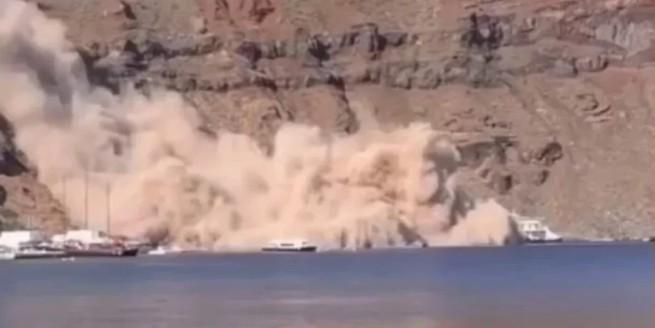Bloomberg columnist Andreas Kluth suggested how the war in Ukraine could end, allowing for an option similar to Finland or Korea.
Three months have passed since the Russian invasion of Ukraine, and hostilities have entered a new phase. Change requires all parties involved – Kyiv, the Kremlin and the West – to reconsider goals and strategies. Klut in his article in Bloomberg draws attention to the fact that in the first phase, the Russian president counted on “reverent awe” from the Ukrainians, but:
“Instead, they became a nation of heroes, from Zelensky to all the men, women and children who sacrificed themselves and stood together against the Russian onslaught. The symbol of the country’s will to resist was Azovstal, a steel plant in the now destroyed Mariupol, which Ukrainians for some Time was protected no matter what.”
This phase of the war is over, the observer writes. Realizing that the war promises to be neither easy nor fast, the commander-in-chief ordered the troops to concentrate on capturing only the south and east of Ukraine. So the second phase will most likely be less dynamic, but more “painstaking”. In an endless clash, both sides will lose, gain and reconquer territories.
What will happen in the third phase? Two positions are possible:
Russia’s victory: it will completely destroy the army of Ukraine, dismember or liquidate an independent country, subdue the population. However, Klut rejects the possibility of such a scenario, since every day Ukraine receives more and more weapons.
The victory of Ukraine and the return to positions before the invasion. Klut believes that this will be a catastrophic defeat that the Russian president will not be able to hide from his citizens. Such a scenario assumes that Putin will decide on tactical nuclear strikes, forcing Ukraine to surrender. This is the worst of all possible options, capable of dragging the West into the war. However, Klut doubts that it will come to that, as well as Ukraine’s ability to dislodge Russian forces.
The observer believes that the most likely scenario is a protracted war, which will lead to an actual “draw”. At the same time, a significant part of Ukraine will be destroyed, and some regions will not be able to recover. Millions of Ukrainian refugees, women and children, will never return home. They will be forced to start a new life where they fled from the war, eventually reunited with their men.
And Russia, indefinitely, will become the international pariah it already is. Europe will be able to live without Russian energy carriers, cutting off the much-needed stream of finance for the Kremlin. Russia will not receive technologies and components, and talented specialists will leave the country. With such an outcome, Klut believes, mutual exhaustion will force both sides to start negotiations, sooner or later. In his article, the reviewer states:
“No matter what Kyiv says now, it cannot take back Crimea, Luhansk or Donetsk. Putin annexed the first of them and recognized the “independence” of the so-called “republics” in the Donbass, with the obvious intention of absorbing them. He cannot give up these regions and at the same time declare victory at home. But Kyiv must insist on maintaining control of the Black Sea coast, otherwise Ukraine will be locked in on land and become defenseless in the long term.”
Klut believes that one of the most likely prospects for this war is the Korean model: no peace treaty, but a forced ceasefire due to exhaustion on both sides. However, compared to South Korea, such an outcome would be much less promising for Ukraine. After all, Korea was under the explicit protection of the United States and was able to develop its economy and culture.
The second option is an analogy of the Finnish model. In the 1939-1940 war, Finland brought the war to a stalemate by successfully holding back the Soviet invasion. It retained its independence, renouncing some territories in favor of the USSR. But also giving up part of their sovereignty. The Finnish side became a neutral buffer country, coordinating its foreign policy with Moscow. In the end, Finland managed to become a prosperous country and even recently applied to NATO. But in such a scenario, Ukraine will have to wait for decades to improve the situation in the country. Klut summarized his predictions as follows:
“The devastating reality of Putin’s war is that for the foreseeable future, it can only lead to erratic and tragic consequences. Little or nothing will be resolved. Success, whatever it may be, will only consist in avoiding even worse disasters” .






More Stories
Today the world remembers the accident at the Chernobyl nuclear power plant
A trial has begun in the case of a fatal accident involving Dora Bakoyanni's car.
Poll: which European countries are ready to defend their homeland to the last